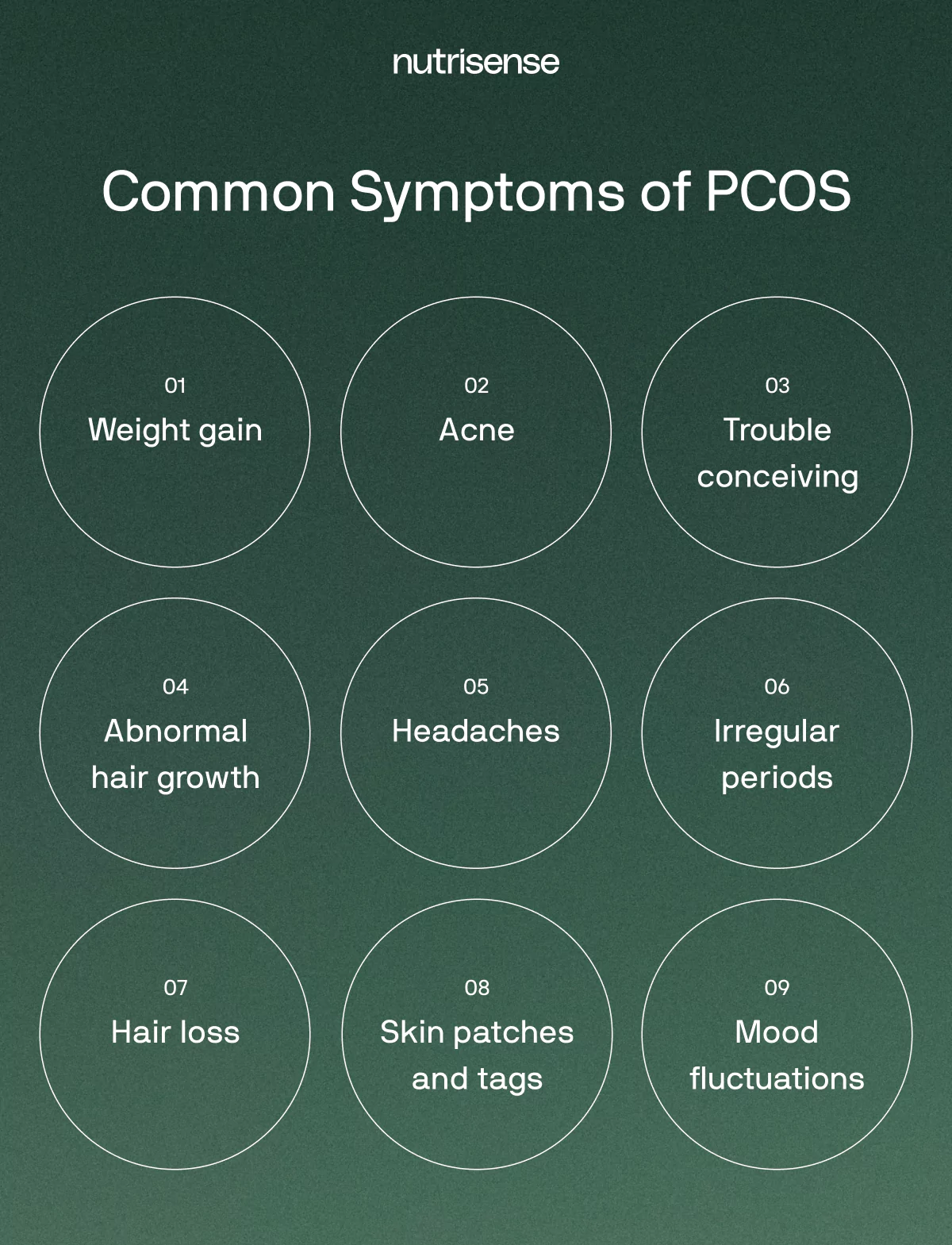A Guide to Exercising With PCOS

Key Takeaways
PCOS, or polycystic ovary syndrome, is an endocrine disorder that affects the reproductive system. Those with PCOS produce androgens (a group of hormones that males traditionally make more of) in higher amounts than usual. This may impact menstrual cycle length and quality, fertility, and many other aspects of health and function.
When you develop PCOS, your body’s ability to ovulate may be negatively impacted. Though not everyone with PCOS will develop the cysts typically associated with the condition, many do. PCOS has been associated with increased oxidative stress. Oxidative stress can itself induce insulin resistance and hyperandrogenism in those with PCOS.
But there is good news regarding the regulation of PCOS! Appropriate types and amounts of exercise may improve PCOS symptoms and support metabolic health, including insulin sensitivity. Engaging in intense exercise with PCOS isn’t always necessary, though specific physical activities may help manage and improve your condition.
Read on to find out more about the symptoms of PCOS and some exercises you can try.
Exercise for PCOS: Can it Help?

Exercise in amounts appropriate for your needs may improve ovulation and menstrual health, insulin sensitivity, weight gain, mental health disorders, and cardiovascular health. Making adjustments to the amount of physical activity in your life may have a positive long-term impact on living with PCOS.
For the majority of people, getting an appropriate level of moderate intensity exercise may help support better overall health and wellness. It can also help you achieve and maintain a healthy body weight, keep your blood sugar levels balanced, and combat some PCOS symptoms.
The key is to find a regular exercise routine that fits your ability, tolerance, lifestyle, and interests. There are many fitness apps that are even designed to help you find a workout routine that you enjoy.
Precautions to Consider

With any physical exercise, it's important to remember to take it easy when you start something new. Whether your goal is adding muscle mass or losing body fat, remember not to push your body to the point of pain or chronic fatigue. Always warm up and cool down by stretching and continuing with light movements like brisk walking.
Adjust your workout intensity and frequency based on how your body tolerates your current approach. If you find you aren’t tolerating your current approach well, you may experience more difficulty sleeping, fatigue, mood imbalances, and even digestive upset.
Your workouts should help you feel better overall, not worse. If you're trying a new sport or workout, it can be helpful to train with a professional for a session or two to ensure that you are using the correct form and know how much to push yourself.
Family nurse practioner and fertility coach Dr. Tara Brandner advises, "Limit HIIT workouts to 2 times per week, as excessive high-intensity exercise can increase cortisol levels, which may exacerbate PCOS symptoms. When crafting your exercise routine, remember that consistency is key."
Best Exercises and Workouts for PCOS
From resistance training and squats to HIIT training and moderate-intensity cardio, many forms of physical exercise can help PCOS. Here are some types of exercise to consider for PCOS:
Aerobic Exercise

Aerobic exercise, also known as endurance training, is a physical activity meant to increase your heart rate and breathing. Aerobic exercise such as zone 2 training has links to improved cardiovascular and pulmonary health.
Doctors often recommend this type of exercise to prevent type 2 diabetes, cardiovascular disease, and cancer. According to Dr. Tara Brandner, "Moderate cardio, such as brisk walking, can be incredibly beneficial for individuals with PCOS. It helps improve insulin sensitivity, which is a crucial factor in managing PCOS symptoms."
Flexibility Exercises

Flexibility exercises like yoga and stretching focus on allowing your body to move more freely. While working on your flexibility, remember to breathe deeply and be patient.
Try attending a local yoga class twice a week, but keep in mind that pushing yourself too hard at first can result in injuries. It's best to work with a trainer or physical therapist to avoid any damage when you're just starting here.
Strength Training

Strength training focuses on making your muscles bigger and stronger. Stronger muscles lead to stronger bones and better posture. Whether you’re a beginner or a seasoned lifter, here are some weight lifting workout tips for women.
Try This PCOS Strength Training Workout

If you’re new to strength training, bodyweight exercises are a great way to get started and perfect your technique before transitioning to dumbbells and barbells. If you have some experience in the gym, add weights as needed to each movement.
Try this full body circuit and aim to complete five rounds of this routine in under 30 minutes, resting two to three minutes in between rounds. Remember to start with a five to 10 minute warm up of brisk walking to get your heart rate up.
- 10 Bodyweight Squats (or goblet squats)
- 8 Bicep Curls
- 10 Reverse Lunges
- 8 Knee Push ups (or full push ups)
- 10 Dumbbell Rows
- 8 Dumbbell Shoulder Presses
- 30 second Plank Hold
What Are the Symptoms of PCOS?
You may start to experience the symptoms of PCOS as early as your first period. Sometimes, the condition can go unnoticed until you have unexplained weight gain, experience irregular periods, or have trouble conceiving.
In some cases, people may also develop PCOS in conjunction with insulin resistance. Insulin resistance is a common cause of type 2 diabetes and may cause your body to have difficulty regulating glucose levels.
It's possible to have PCOS and not know because not everyone experiences overt symptoms. Remember that factors like obesity can increase the prevalence of some of the symptoms of PCOS. However, research shows that issues with insulin sensitivity may exist in PCOS without the presence of obesity or being overweight.
Some of the most common symptoms of PCOS include:

- Weight gain
- Irregular periods
- Trouble conceiving
- Abnormal hair growth
- Acne
- Headaches
- Hair loss
- Skin patches
- Skin tags
- Mood fluctuations
Diagnosing PCOS

If you have any recognizable symptoms of PCOS, your doctor will first review your family history. PCOS also sometimes leads to issues like hypertension (a study found that 40 percent of women with PCOS had elevated blood pressure). Meta-analyses on women's health found that it may put some at increased risk of cardiovascular disease.
PCOS may also affect things like BMI and body composition. If you have family members with PCOS, your likelihood of sharing that condition with them is higher.
The most common ways your doctor will test for PCOS include:
- Pelvic Exams: A pelvic exam will allow your doctor to examine your reproductive organs.
- Blood Tests: Blood tests will be able to check the levels of your hormones, specifically androgens. Your doctor may also screen your blood glucose levels, triglyceride levels, and cholesterol levels as well as certain inflammatory markers.
- Ultrasound: An ultrasound will allow your doctor to check your tissues, organs, and blood vessels. It will help them check for any signs of cysts on your ovaries and see if your ovaries are inflamed.
Diet and Lifestyle Changes
For many people who are diagnosed with PCOS, your doctor will likely recommend dietary changes in addition to exercise. Physical fitness and dietary health go hand-in-hand, especially when treating diseases and conditions like PCOS. Other lifestyle changes such as getting more sleep and reducing other sources of stress can also help improve your symptoms.
Healthy changes in your diet will also help regulate blood sugar levels, energy, sleep, weight, mood, hair health, and skin health. Whether you need minor or drastic changes in your diet, you may want to consider working with a qualified nutritionist such as a registered dietitian to understand your body’s needs.
Other PCOS Treatments
Only your doctor will be able to determine the best plan of action for improving your symptoms. Beyond diet and lifestyle changes, some medications may be prescribed by your doctor to help manage symptoms or regulate glucose.
Find the right Nutrisense programto turn insight into progress.
Go Beyond Glucose Data with Nutrisense
Your glucose can significantly impact how your body feels and functions. That’s why stable levels are an important factor in supporting overall wellbeing. But viewing glucose isn't enough. Nutrisense, you’ll be able to learn how to use your body's data to make informed lifestyle choices that support healthy living.
One-to-one coaching
Sign up to access insurance-covered video calls to work with a glucose expert: a personal registered dietitian or certified nutritionist who will help tailor your lifestyle and diet to your goals.
Monitor and measure what matters
With the Nutrisense CGM Program, you can monitor your glucose with health tech like glucose biosensors and continuous glucose monitor (CGM)s, and analyze the trends over time with the Nutrisense App. This will help you make the most informed choices about the foods you consume and their impact on your health.
Find your best fit
Ready to take the first step? Start with our quiz to find the right Nutrisense program to help you take control.

Cheri is a registered dietitian and Health Co-Ordinator Product Development at Nutrisense, with a Master's degree from the University of Utah in Integrative Physiology and Nutrition. She has a strong interest in functional and integrative nutrition and emphasizes the importance of exploring and using your own body (symptoms, energy, mood, labs, CGM data) to find what your personal optimal is.




